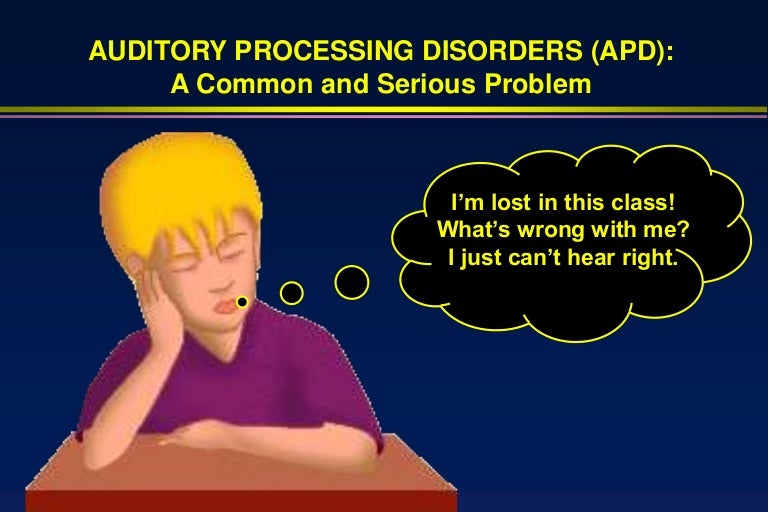
Remember and/or comprehend spoken information Recognize and integrate a sequence of sounds into words or other combinations Read, spell, write, understand vocabulary, or learn a foreign language Individuals with APD demonstrate a poor ability to:ĭiscriminate subtle differences in sounds and words There are many behaviors that may point to APD. Signs and Symptoms of Auditory Processing Disorders He or she may fail to be able to do so even when appearing to have heard and understood the directions.
#Auditory processing disorder in adults memorizing lyrics series#
For example, a child with auditory sequencing problems may not be able to complete a series of tasks in the right order. Difficulties with auditory sequencing may include confusing numbers like 93 for 39 and confusing lists and sequences.

Difficulties associated with auditory memory may include remembering people’s names, memorizing telephone numbers, following multi-step directions, and recalling stories or songs.Īuditory sequencing is the ability to understand and recall the order of words. For example, a child may miss lessons in class if he or she cannot filter extraneous background noise in the classroom.Īuditory memory is the ability to recall what is heard after a period of time and includes both short-term and long-term memory. A child who struggles with auditory figure-ground discrimination may be unable to filter background conversations and noises to focus on what is important. If a child has difficulty with auditory discrimination, he or she may confuse similar words like seventy and seventeen, have trouble learning to read, and be unable to follow directions even when the child appears to be paying attention.Īuditory figure-ground discrimination is the ability to pick out important sounds from a noisy background. Here are more details about the four types of auditory skills essential to processing what one hears, and which may be compromised with APD:Īuditory discrimination is the ability to notice, compare, and distinguish the distinct and separate sounds in words. They show delayed responses to verbal requests and instructions and often will ask someone to repeat what has been said. They have trouble distinguishing between words or syllables that sound alike (auditory discrimination) and recalling what they heard (poor auditory memory). Individuals with APD often are unable to hear sounds as words and have learning problems, including difficulty in reading, spelling, and language comprehension. Consequently, it remains challenging to diagnose, manage and treat, given the wide variety of symptoms grouped under the label, the complex relationship between APD and other disorders and disabilities, and uncertainties about its cause(s). The hearing difficulties associated with APD occur despite typical hearing thresholds, thus audibility of sounds per se is not the cause. These include challenges in recognizing which sounds are important and which are background noise telling one sound apart from another locating where sounds are coming from remembering sounds in the order they are heard and experiencing additional difficulties in understanding after exposure to loud noises. The umbrella term describes a heterogeneous group of disorders of central auditory processing identified in an ever increasing population, spanning infancy through the elderly and of diverse etiology due to various underlying pathologies, all leading to difficulties in making sense of the sounds that one hears. With APD, the way the brain translates those sounds is disrupted, resulting in jumbled messages. A person with APD can hear sounds in fact, many have typical audiogram results. APD is the result of impaired neural function.

Auditory processing disorders (APD), also known as central auditory processing disorders (CAPD), occur when the brain is unable to process sounds.


 0 kommentar(er)
0 kommentar(er)
